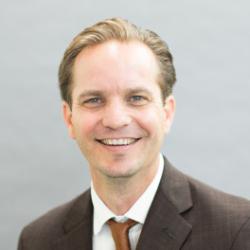
Robbing Peter to pay Paul. This is an idiomatic expression about bad – or at least disappointing – economics.
Curiously, it was born within the context of the Church’s supposedly poor financial administration of its properties. While there are many sources to the origin of the idiom, there is a famous story from 17th C. England when a bishop was said to have ordered funds transferred from one old church (St. Peter’s Abbey) to another in disrepair (St. Paul’s Cathedral). Thus St. Paul’s was helped but not without St. Peter’s suffering greatly financially.
To play by this “economic switch-a-roo” essentially means to dispose of one debt by simply incurring a similar one – and usually within a shared bad balance sheet, as may have been the case in the same poorly financed English diocese while managing its troubled assets.
Implied in the expression, most importantly, is the close relationship the two apostles Peter and Paul had and that, therefore, should never be strictly disassociated from one another. Both Peter and Paul should be helped together, and not one at the expense of the other.
In economic terms Peter and Paul should be in a win-win, not a win-lose relationship.
Therefore, robbing Peter to pay Paul is often used pejoratively to speak of situations when the economic winners are a direct consequence of the economic losers: a zero-sum game. As Paul celebrates, Peter kicks and screams.
In Rome, where Peter and Paul are co-patron saints and both venerated on the same municipal holiday (June 29), ironically the idiomatic expression is not so well known as it is practiced by locals. Roman politicians and public administrators are especially good at Peter-and-Paul theft!
The latest robbing of Peter to pay Paul was announced earlier this week, making national headlines. It was reported that Roman welfare bureaucrats “stole” from one part of a public entitlement budget, known as INPS, to “pay” for another of its popular benefits – an unemployment program just passed under the current legislature and promoted by the Five Star Movement, Italy’s populist party.
In this specific case, Rome’s INPS managers will be taking away a percentage of retirement benefits worth 250 million euros – especially from “golden pensioners” earning over €100,000 – in order to make promised back payments for “citizens’ wages”, a monthly stipend of €780 now guaranteed to all non-working Italian adults.
In a May 22 La Stampa article Pensioni tagliate a 5,6 milioni d’italiani per ripagare il reddito di cittadinanza (“Pensions cut to 5.6 million Italians to compensate owed citizens’ wages”), we learn:
The financial move will hit 5.6 million Italians. This will affect pensions exceeding three times the minimum (1,522 euros gross per month) and applied starting in April. Also, cuts will be made to “golden pensions”, [that is,]… for pensions exceeding 100,000 euros gross per year starting [retroactively] from January 1, 2019 and for five years. In a maneuver from the intervention on pensions exceeding 100 thousand euros, a savings of 76 million euros is foreseen in 2019, 80 million in 2020 and 83 million in 2021.
What else could anyone in Italy expect when the state’s competing welfare programs are promised to citizens yet share the same sickly public finances and without any private means to increase INPS’s overall portfolio? INPS can only redistribute its limited funds “fairly”, by taking from the so-called “less deserving” Italian Pietros and giving to the “more deserving” Paolos.
Where there is no engine for wealth creation within public welfare (the exact opposite of what private welfare companies can do by creatively earning and raising new funds), finances eventually dry up. Even with all the switching and shifting of monies from Peter to Paul and from Paul back to Peter, the state’s welfare pie never really actually grows and cannot ever promise bigger or even equal slices for all.
As famously said by the late Margaret Thatcher when blasting the false hopes of European socialist welfare states: “The problem with socialism is that you eventually run out of other people’s money.”
(Photo Credit: Wikicommons)

